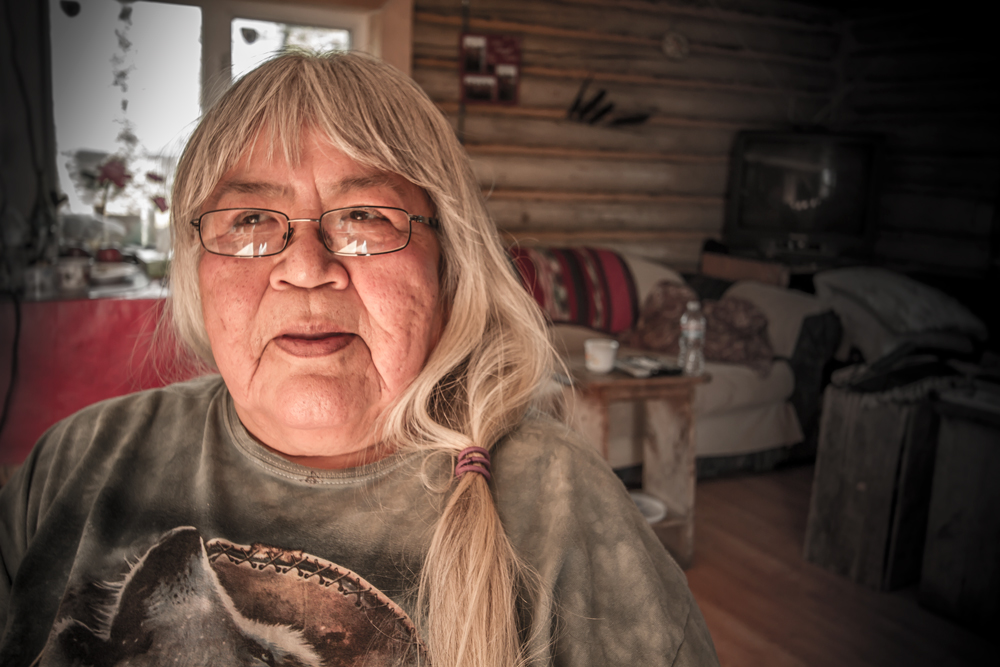Welcome to DU!
The truly grassroots left-of-center political community where regular people, not algorithms, drive the discussions and set the standards.
Join the community:
Create a free account
Support DU (and get rid of ads!):
Become a Star Member
Latest Breaking News
Editorials & Other Articles
General Discussion
The DU Lounge
All Forums
Issue Forums
Culture Forums
Alliance Forums
Region Forums
Support Forums
Help & Search
First Americans
Related: About this forumViolence Against Native American Women
Violence Against Native American Women
Savanna’s Act, a bill that calls for the standardization of protocols for law enforcement agencies and for updating data for federal databases relevant to missing or murdered Native American women, was re-introduced to the floor on Monday by Alaska Senator Lisa Murkoski.
Savanna’s Act is named in honor of Savanna LaFontaine-Greywind, a pregnant Spirit Lake tribe member, who was murdered in South Dakota in 2017. Originally, Senator Heidi Heitkamp of North Dakota introduced the bill in October 2017 to address the violence that afflicts Native American women. Last year, the act passed in the Senate but was killed by Republican Bob Goodlatte in the House Judiciary Committee in 2018.
In the US, there is an epidemic of violence against Native American women that Congress has not addressed. Over half of Native American women are victims of sexual assault and a third of Native women are raped. These rates are double that of white women. Homicide is the third leading cause of death for Native women ages 15 to 24 in and outside of tribal land.
The authority and power of tribal law enforcement has been challenged and limited by the US government. Oliphant v. Suquamish Indian Tribe, a 1978 Supreme Court case, provides immunity to non-Native Americans offenders through limiting the authority of tribal law enforcement. This thereby weakens tribal authority and compromises the safety of tribe members. The Violence Against Women Reauthorization Act of 2013 tried to remedy the issue of jurisdiction, but it did not completely reestablish complete jurisdiction to tribal authority.
Savanna’s Act is a starting point to help protect one of the most marginalized groups in our country. As the number of missing and murdered women continues to grow, more attention needs to be given to this epidemic and Savanna’s Act is just the start of the solution.
http://feminist.org/blog/index.php/2019/02/13/violence-against-native-american-women/
Ending Violence Against Native Women

In the United States, violence against indigenous women has reached unprecedented levels on tribal lands and in Alaska Native villages. More than 4 in 5 American Indian and Alaska Native women have experienced violence, and more than 1 in 2 have experienced sexual violence. Alaska Native women continue to suffer the highest rate of forcible sexual assault and have reported rates of domestic violence up to 10 times higher than in the rest of the United States. Though available data is limited, the number of missing and murdered American Indian and Alaska Native women and the lack of a diligent and adequate federal response is extremely alarming to indigenous women, tribal governments, and communities. On some reservations, indigenous women are murdered at more than ten times the national average.
Statistics define the scale of the problem, but do nothing to convey the experience of the epidemic. They tell part of the story, but fail to account for the devastating impacts this violence has on the survivors, Indian families, Native communities, and Indian nations themselves. Native children exposed to violence suffer rates of PTSD three times higher than the rest of the general population. Nevertheless, the statistics make absolutely clear that violence against Native women is a crisis that cannot wait to be addressed.
The Center’s Safe Women, Strong Nations project partners with Native women’s organizations and Indian and Alaska Native nations to end violence against Native women and girls. Our project raises awareness to gain strong federal action to end violence against Native women; provides legal advice to national Native women’s organizations and Indian nations on ways to restore tribal criminal authority; and helps Indian nations increase their capacity to prevent violence and punish offenders on their lands.
RACIAL DISCRIMINATION AND DENIAL OF EQUALITY UNDER THE LAW
It is outrageous that the vast majority of these women never see their abusers or rapists brought to justice. An unworkable, race-based criminal jurisdictional scheme created by the United States has limited the ability of Indian nations to protect Native women from violence and to provide them with meaningful remedies. For more than 35 years, United States law has stripped Indian nations of all criminal authority over non-Indians. As a result, until recent changes in the law, Indian nations were unable to prosecute non-Indians, who reportedly commit the vast majority (96%) of sexual violence against Native women. The Census Bureau reports that non-Indians now comprise 76% of the population on tribal lands and 68% of the population in Alaska Native villages. Many Native women have married non-Indians. However, it is unacceptable that a non-Indian who chooses to marry a Native woman, live on her reservation, and commit acts of domestic violence against her, cannot be criminally prosecuted by an Indian nation and more often than not will never be prosecuted by any government.
. . . . .
https://indianlaw.org/issue/ending-violence-against-native-women
InfoView thread info, including edit history
TrashPut this thread in your Trash Can (My DU » Trash Can)
BookmarkAdd this thread to your Bookmarks (My DU » Bookmarks)
0 replies, 1651 views
ShareGet links to this post and/or share on social media
AlertAlert this post for a rule violation
PowersThere are no powers you can use on this post
EditCannot edit other people's posts
ReplyReply to this post
EditCannot edit other people's posts
Rec (3)
ReplyReply to this post